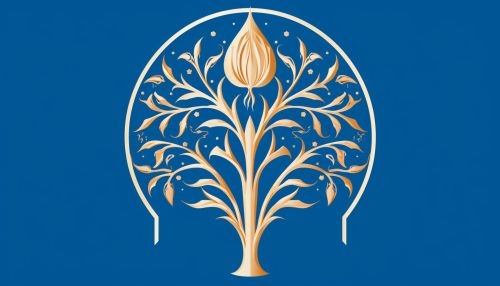International Prize for Arabic Fiction
Overview
The International Prize for Arabic Fiction (IPAF) is a prestigious literary award that recognizes and rewards excellence in contemporary Arabic creative writing. The prize is often referred to as the "Arabic Booker," in reference to the Man Booker Prize, a high-profile English language literary award.


History
The International Prize for Arabic Fiction was established in 2007 in Abu Dhabi, United Arab Emirates, by the Booker Prize Foundation in the UK and the Emirates Foundation in the UAE. The aim was to bring Arabic literature to a wider, global audience by rewarding and promoting high-quality Arabic fiction. The first award was given in 2008.
Eligibility and Selection
To be eligible for the prize, works must be original, fictional, full-length novels written in Arabic. Translations, short stories, and works of non-fiction are not eligible. The novels must have been published within the last two years and the authors must be alive at the time of nomination.
The selection process for the prize is rigorous and involves several stages. First, publishers from around the world are invited to submit entries. Each publisher can submit up to three novels, but the novels must be by different authors. The submitted works are then reviewed by a panel of judges, who are selected by the IPAF board of trustees. The judges are typically literary critics, writers, and academics from the Arab world.


Prize
The winner of the International Prize for Arabic Fiction receives $50,000, and the six shortlisted authors each receive $10,000. In addition to the monetary award, the winning book is guaranteed an English translation and publication, which significantly increases its international reach and readership.
Impact
The IPAF has had a significant impact on Arabic literature and its global visibility. Winning the prize often leads to increased book sales, international recognition, and translation into other languages. The prize has also helped to stimulate interest in Arabic literature among non-Arabic speaking readers.


Criticisms
Despite its success, the International Prize for Arabic Fiction has faced some criticisms. Some critics argue that the prize is too focused on novels and neglects other forms of Arabic literature, such as poetry and short stories. Others have raised concerns about the influence of the prize's sponsors and the selection process.
Notable Winners
Some of the notable winners of the International Prize for Arabic Fiction include Youssef Ziedan for his novel "Azazeel" in 2009, Raja Alem for "The Dove's Necklace" in 2011, and Saud Alsanousi for "The Bamboo Stalk" in 2013. Each of these novels has made a significant contribution to contemporary Arabic literature and has gained international recognition.


